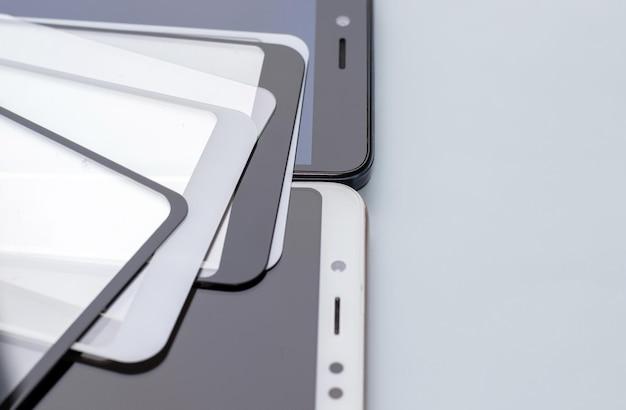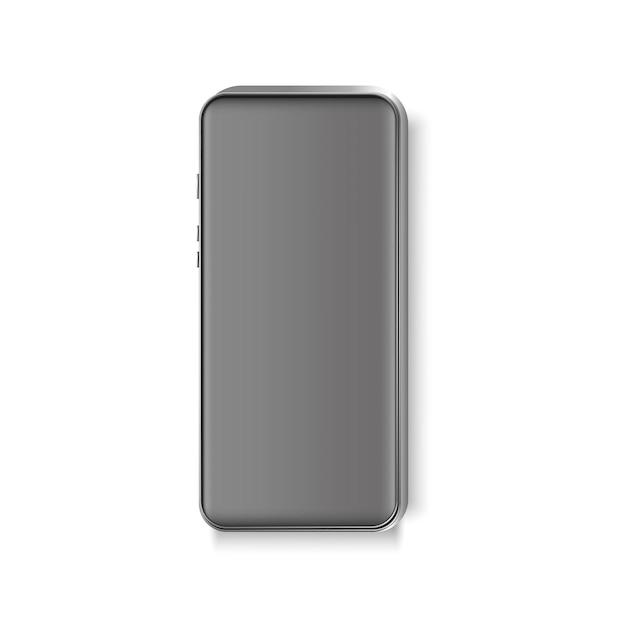In this ever-evolving era of technology, protecting our precious mobile screens has become crucial. With an endless array of screen protectors available in the market, it’s essential to understand which option provides the best defense for our devices. In this blog post, we will delve deep into the debate between ceramic and tempered glass screen protectors.
Are tempered glass screen protectors worth the hype? Can they truly prevent those dreaded cracks on our screens? Is ceramic a better alternative? These burning questions will be answered as we explore the pros and cons of both options. Additionally, we will address the effectiveness of liquid screen protectors and compare them to tempered glass. Stick with us to discover the toughest screen protector that suits your needs, as well as whether Gorilla glass is a superior choice for your mobile device. Finally, we’ll explore the cost factor and look into the possibility of reapplying tempered glass.
Stay tuned for a comprehensive analysis that will unveil the truth about ceramic and tempered glass screen protectors, ensuring you make an informed decision to safeguard your prized possession!
Is Ceramic or Tempered Glass Better
The Battle of the Materials: Ceramic vs. Tempered Glass
When it comes to the material used for smartphone screens, the argument of ceramic versus tempered glass has sparked quite a debate among tech enthusiasts. Both materials have their own unique properties, but which one reigns supreme? Join us as we delve into the strengths and weaknesses of each and determine which material takes the crown.
The Sturdiness Showdown: Ceramic vs. Tempered Glass
Ceramic: First up in our battle is ceramic. Known for its durability and scratch resistance, ceramic offers a strong contender in the world of smartphone screens. With its sleek and smooth feel, ceramic is often touted as a premium material choice. Its resistance to scratches means your screen can stay looking pristine even after months of use.
Tempered Glass: On the other side of the ring, tempered glass steps up with its own set of advantages. Made by subjecting regular glass to a process of heating and rapid cooling, tempered glass gains increased strength. This material is designed to withstand accidental drops and everyday wear and tear. Plus, it doesn’t compromise on touch sensitivity, providing a seamless user experience.
A Matter of Weight: Ceramic vs. Tempered Glass
Ceramic: While ceramic has its strong points in terms of durability, it does come with a trade-off in weight. Due to its composition, ceramic can weigh more than tempered glass, adding a bit of heft to your device. If you’re someone who prefers a lightweight phone, you might find yourself second-guessing ceramic as your material of choice.
Tempered Glass: Tempered glass, on the other hand, manages to strike a more balanced approach when it comes to weight. It provides the durability you need without adding unnecessary bulk to your pockets. So if you’re prone to butterfingers or lead an on-the-go lifestyle, tempered glass might just be the winning choice.
Aesthetic Appeal: Ceramic vs. Tempered Glass
Ceramic: Ceramic has a distinct advantage when it comes to aesthetics. Its smooth and polished finish gives smartphones a sleek and premium look. Plus, ceramic is available in a wider range of colors compared to tempered glass, allowing for more customization options. If you view your phone as a fashion statement, ceramic is the fashionable friend you’ve been looking for.
Tempered Glass: While tempered glass might not have as wide a range of color options, it still manages to hold its own in terms of appearance. The clarity and transparency of tempered glass give your screen a high-definition look, making it a great choice for those who prioritize image quality.
The Verdict: Ceramic or Tempered Glass – Who Takes the Crown
In this battle of the materials, both ceramic and tempered glass bring their own strengths to the ring. Ceramic offers unparalleled scratch resistance and a premium feel, while tempered glass provides durability and a more lightweight experience. Ultimately, the choice between the two boils down to personal preference and individual needs. Whichever material you choose, rest assured that advancements in both ceramic and tempered glass technology will continue to enhance the smartphone screen experience.
So, dear smartphone aficionados, which material will be gracing the screen of your next device? Will it be the elegance of ceramic or the toughness of tempered glass? The choice is yours!
FAQ: Is Ceramic Or Tempered Glass Better
Are tempered glass screen protectors worth it
Tempered glass screen protectors are absolutely worth it! They provide an extra layer of protection for your device, safeguarding it against scratches, cracks, and even high-impact drops. Investing in a tempered glass screen protector is like giving your phone a suit of armor.
What type of screen protector is best
When it comes to screen protectors, tempered glass takes the crown. Its durability and strength surpass other options like plastic or film protectors. While it may be a bit pricier, the added protection it offers is well worth the investment.
Do screen protectors prevent cracks
Yes, they do! Screen protectors act as a barrier between your phone’s delicate screen and potential hazards. They absorb impact and distribute the force, reducing the likelihood of cracks or damage. So, with a screen protector in place, you can say goodbye to the stress of a shattered screen.
Is liquid screen protector better than tempered glass
While liquid screen protectors have their benefits, they aren’t as effective as tempered glass. Liquid protectors don’t provide the same level of impact resistance or scratch protection. It’s like choosing an umbrella made of mist instead of a sturdy one to shield you from a downpour. Stick with tempered glass for reliable protection.
Is tempered glass good for mobile
Absolutely! Tempered glass is an excellent choice for mobile devices. Its durability and strength make it capable of withstanding the everyday wear and tear that our phones go through. With a tempered glass screen protector, you can confidently use your mobile device without worrying about potential damage.
What is better than tempered glass
While tempered glass is fantastic, there’s a new kid on the block that gives it some competition. Ceramic screen protectors have emerged as a strong contender. They offer similar toughness to tempered glass but with the added benefit of being highly scratch-resistant. So, if you’re looking for an extra level of protection, ceramic screen protectors are worth considering.
What is the toughest screen protector
When it comes to toughness, it’s hard to beat sapphire glass screen protectors. Made from lab-grown synthetic sapphire, this ultra-durable material ranks highly on the hardness scale. However, sapphire glass protectors are quite expensive and not as widely available as tempered glass or ceramic options.
Does tempered glass break easily
While tempered glass is designed to be strong and durable, it can still break under extreme pressure or impact. However, it’s important to note that tempered glass is engineered to shatter into small, rounded pieces rather than sharp, jagged shards. This reduces the risk of injury and makes cleanup easier.
Can we remove tempered glass and reapply
Usually, once a tempered glass screen protector is applied, it cannot be removed and reapplied without compromising its adhesive properties. However, some manufacturers provide guidance on how to remove and reapply the protector successfully. It’s always best to check the instructions or reach out to the manufacturer for guidance in such cases.
Which is better Gorilla Glass or tempered glass
Gorilla Glass and tempered glass serve different purposes. Gorilla Glass refers to the tough glass that manufacturers use to build smartphone screens. On the other hand, tempered glass screen protectors are an additional layer of protection that you can add on top of your device’s screen. So, it’s not a matter of one being better than the other. They can work together to provide optimal protection for your device.
Does Apple use Gorilla Glass
Apple does not use Gorilla Glass for its iPhone screens. Instead, they utilize their own proprietary glass, which boasts exceptional durability and scratch resistance. So, rest assured, Apple devices are equipped with top-notch glass to withstand daily use.
Does Gorilla Glass 5 need tempered
While Gorilla Glass 5 is incredibly strong and scratch-resistant, it’s always a good idea to use a tempered glass screen protector. Think of it as an extra layer of armor for your display. It helps protect against impact damage and shields your device from scratches caused by keys, coins, or other sharp objects in your pocket or purse.
Is tempered glass expensive
The cost of tempered glass screen protectors can vary depending on factors such as the brand, device compatibility, and additional features. Generally, they are more expensive than plastic or film protectors. However, considering the level of protection they provide, the cost is well worth it. Think of it as an investment in preventing costly screen repairs.
Which Gorilla Glass is best
Corning, the manufacturer of Gorilla Glass, has released multiple versions of their product. The latest iteration, Gorilla Glass Victus, offers the highest level of drop and scratch resistance available. So, if you want the best that Gorilla Glass has to offer, look for devices with Gorilla Glass Victus.
Is there any way to cut tempered glass
Attempting to cut tempered glass is like trying to cut diamonds with a butter knife – it’s not going to end well. Tempered glass goes through a process of rapid heating and cooling, which gives it its strength. However, this process also makes it impossible to cut or modify without shattering it. So, best to leave the cutting to the professionals.
What is better, a ceramic or glass screen protector
Both ceramic and glass screen protectors have their advantages. While glass protectors offer excellent impact resistance, ceramic protectors take it a step further with even greater scratch resistance. So, if you want the best of both worlds – protection against cracks and scratches – a ceramic screen protector is the way to go.
Is a thick glass screen protector better
When it comes to screen protectors, thickness isn’t necessarily an indicator of better protection. Thicker protectors may offer more resistance against impact but can potentially compromise touch sensitivity. It’s recommended to choose a screen protector with a thickness that strikes a balance between protection and usability, typically around 0.3 to 0.5mm.
What is the toughest cell phone case
Phone cases made from durable materials like carbon fiber or military-grade plastics offer excellent protection against drops and impacts. Additionally, hybrid cases that combine multiple materials, such as rubber and plastic, can provide superior shock absorption. Look for cases specifically designed to withstand harsh conditions for the toughest protection.
Can tempered glass damage your screen
No, properly installed tempered glass screen protectors will not damage your screen. In fact, they act as a sacrificial layer, absorbing the brunt of any impact or scratches that would otherwise harm your device’s screen. So, you can enjoy the benefits of a protected screen without worrying about damage to your actual display.
Can you use two screen protectors
While it’s technically possible to use two screen protectors, it’s not recommended. Adding a second screen protector can lead to compatibility issues, such as decreased touch sensitivity or a poor fit. Additionally, layering two screen protectors may not provide any significant additional protection. It’s best to stick with a single high-quality screen protector for optimal results.
That wraps up our FAQ section on ceramic vs. tempered glass screen protectors. Remember, protecting your phone’s screen is no joke, and choosing the right screen protector can save you a lot of headaches and cracked screens. So, invest wisely and keep your devices safe from the perils of everyday life.

